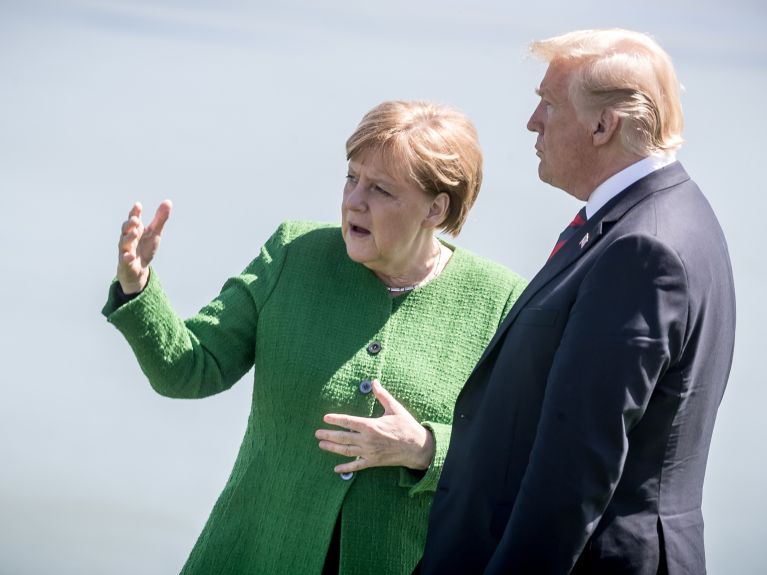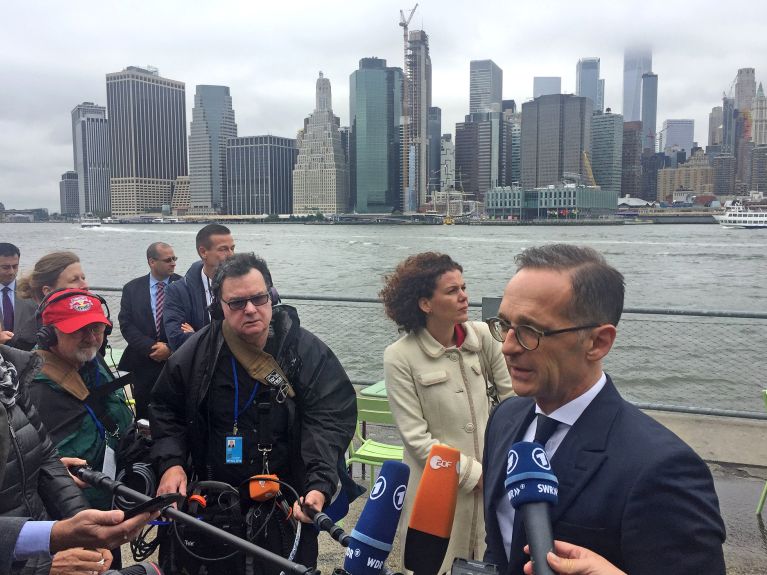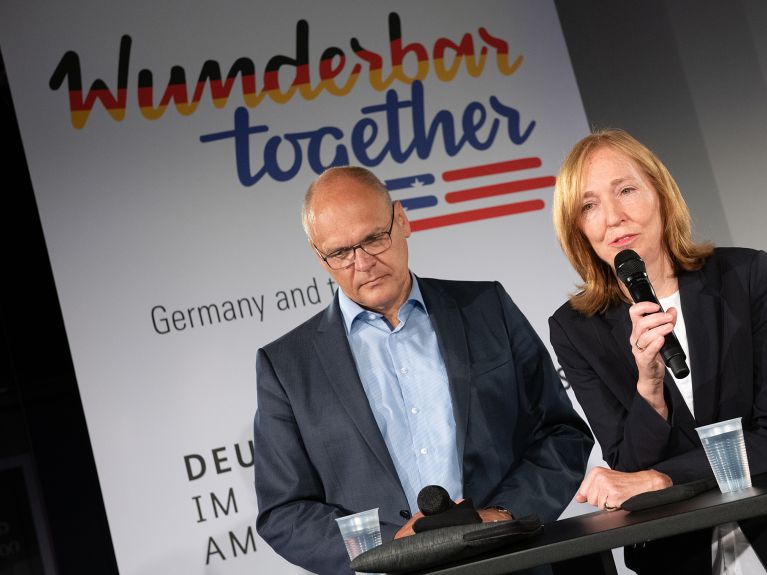History part 6: Recalibrating the partnership
Germany and the USA are important to each other, and share many experiences and values. However, they are not always of the same opinion.

After the end of the Cold War, no country was as strong and influential as the USA. The Gulf War to liberate Kuwait in spring 1991 was a demonstration of superiority in military technology. The USA had emerged as the sole world power and in the battle of the ideologies the American liberal doctrine had won the day.
The post 9/11 shock
Then came the terrorist attacks of 11 September 2001 and almost everything changed. The USA was in a state of shock, as were people in Germany. In the subsequent US “War on Terror”, Germany stood firmly on America’s side. The German participation in deployments in Afghanistan began a short while later as part of Operation Enduring Freedom and the ISAF. However, it also became clear that the relationship was stable enough to endure internal differences. When US President George W. Bush decided in 2003 (amongst other things as the US Administration felt Iraq harboured and assisted the Al Qaeda terrorist network which had carried out the 9/11 attacks) to invade Iraq, Germany under Federal Chancellor Gerhard Schröder refused to take part in the war.
Merkel and Obama – transatlantic friends
In 2009, Barack Obama was elected President of the United States. He was from the outset very popular among Germans. The relationship between the two governments evolved into close partnership. Obama emphasised on several occasions how important German Chancellor Angela Merkel was for him. He considered Merkel, who in 2005 became the first woman head of government in Germany, his most important ally in Europe.
Renewing the partnership
Today Germany and the USA can look back on a long-standing friendship. One key pillar of the relationship is the shared commitment to NATO. The comprehensive German-US collaboration in the field of security policy has constantly advanced across the various topics it covers, including combatting international terrorism. Federal Chancellor Angela Merkel, Federal Foreign Minister Maas and other members of the German cabinet pay regular visits to the US, fostering contacts between the two countries.

Economic relations between the two countries are likewise close: The USA is the most important destination for German exports, with German goods worth 111.53 billion euros heading there in 2017. And Germany is the most important US trading partner in Europe. In the investment league table, Germany ranks the fourth largest investor in America, behind Great Britain, Canada and Japan.
Nevertheless, Germany and the USA have different opinions on various current issues, and this includes their divergent understandings of multilateralism. German Federal Foreign Minister Heiko Maas outlined the parameters of a new USA strategy in August 2018 and encouraged a re-evaluation of the partnership. “Not in order to put it behind us, but in order to rejuvenate and maintain the relationship,” Maas continued.

Positive image of Germany
Interestingly enough, the differences of opinion at the political level have hardly any effect on the fundamental transatlantic bond at the level of civil society. In the USA, for all the criticism by parts of the administration Germany continues to be viewed favourably, and increasingly so – as a business hub, as a technology hub, and as a modern, tolerant, open-minded country.

